The Facebook CEO’s involvement in a family dispute over four small parcels of land worries many on an island where longtime residents have lost land to wealthy newcomers
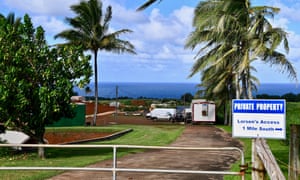
On 22 December 2016, a retired professor of Hawaiian studies named Carlos Andrade sent a letter to dozens of his relatives informing them that he was about to sue them.
The relatives were among hundreds of partial owners of four small parcels of land on the island of Kauai, the legacy of a shared ancestor named Manuel Rapozo. A neighboring landowner, Northshore Kalo LLC, was willing to pay the legal fees to clear up the title on the property – enabling Andrade to take full ownership and compensate his fellow descendants for their shares.
It wasn’t until nearly a month later that the Honolulu Star-Advertiser broke the news that Northshore Kalo LLC was not a taro farm, as some had assumed (“kalo” means “taro” in Hawaiian), but a shell corporation controlled by Mark Zuckerberg. The Facebook founder was pursuing eight separate lawsuits related to parcels of land that, like the Rapozo parcels, were surrounded by his 700-acre Kauai estate.
Those who had been sued had a choice: they could sell their partial shares or try to outbid a billionaire in a public auction. If they lost, they could be forced to pay Zuckerberg’s legal fees.
A media firestorm ensued, with some Native Hawaiians declaring Zuckerberg the “face of neocolonialism” and local politicians demanding reform to the state law that created the “quiet title and partition” process. Within days, Zuckerberg published an op-ed in the local paper apologizing for his ham-fisted approach and promising to drop the lawsuits.
But beneath the headline, Zuckerberg’s mea culpa included one major caveat: he would continue to support Andrade’s claim to his family’s parcels. Now, two years later, the quiet title process initiated by Andrade is drawing to a close and a judge has ordered a public auction of the parcels.
When one of the richest men in the world has expressed an interest in the outcome of an auction, there is no real question that he will get his way. But as the process heads towards its inevitable conclusion, a small cadre of Rapozo descendants are continuing to resist the forced sale of the property. They know that they don’t have a snowball’s chance in hell of holding on to their tiny slice of paradise. Still, they argue that Zuckerberg’s involvement in the case, even though he is no longer directly suing them, makes a mockery of an unfair system that has long seen longtime residents of Hawaii lose their land to wealthy newcomers, be they sugar barons or tech billionaires.
“There’s a class of person – and Zuckerberg is a poster child – that have so much money that they distort day-to-day deeds and behavior,” said Wayne Rapozo, a London-based corporate lawyer who is a descendant of Manuel Rapozo’s brother and is helping to coordinate and finance the holdouts’ legal fight.
“Even if we lose, this has to be fought,” Rapozo continued. “I want my nieces and descendants to know that someone thought it was wrong … I want it to be known that it was resisted.”
‘My children grew up there’
On a blustery afternoon last November, Shannon Buckner stood in the shadow of the 6ft stone wall that surrounds Zuckerberg’s island retreat, peering through the gate. “This is our grandfather that I never knew, and I don’t want it to be gone,” she said. “I want my kids to be able to enjoy it. I’m going to fight to the end even if I lose.”
Buckner first learned of her inheritance – a 0.026% share of the Rapozo parcels – when she was sued by Andrade and Northshore Kalo back in 2016. The 46-year-old mother of two was living in Lihue, Kauai, at the time, just 20 minutes south of the parcels, which are located near the north shore plantation town of Kilauea. But she grew up on another island and was not familiar with her connection to the Portuguese sugar plantation worker who had purchased the property in 1894.
That ancestor, Manuel Rapozo, immigrated to Kauai from the Azores in 1882, according to family lore, and eventually renounced his Portuguese citizenship to become a full-fledged citizen of the Kingdom of Hawaii. When he died intestate in 1928, ownership of his land was passed to his seven children, and from there down through the generations.
For Rapozo descendants who grew up on Kauai, the parcels were an important part of their birthright. Before Zuckerberg purchased the estate (and built his mile-long wall), it was owned by a local auto dealer and surrounded by a hog wire fence. Family members had keys to the gate and could visit the parcels or access Pila’a beach, a stretch of white sand that can otherwise only be reached by a somewhat treacherous hike along the coast.
“My children grew up on that property,” said one descendant, a resident of Kilauea who spoke to the Guardian on condition of anonymity, citing concerns over her employment. “I have animals buried there. My children learned to ride bikes, shoot guns, drive, you name it, on that property.”
Other holdouts, such as Alika Guerrero, have never set foot on the property, but still want to maintain their connection to it.
The 24-year-old Guerrero, who teaches Native Hawaiian culture and language at a resort on Maui, spoke to the Guardian in the lobby of another Maui hotel where his mother, 57-year-old Jennie Guerrero, works in the housekeeping department. Jennie Guerrero owns a 0.45% share of the property, which she said she wanted to pass on to her three sons.
The 24-year-old Guerrero, who teaches Native Hawaiian culture and language at a resort on Maui, spoke to the Guardian in the lobby of another Maui hotel where his mother, 57-year-old Jennie Guerrero, works in the housekeeping department. Jennie Guerrero owns a 0.45% share of the property, which she said she wanted to pass on to her three sons.
“Both of us had the same response,” Alika Guerrero said of the day that he and his mother learned of the lawsuits. “Our family name is not going to be attached to anything to do with a billionaire buying up land in Hawaii and having us sell out our ancestral land.”
Wayne Rapozo, who grew up on Kauai and now lives and works in London, said that Zuckerberg and Andrade have created a model for how a “tag team tango of billionaire and dissident cousin” can dispossess “ordinary middle-class families that don’t have $40bn to play games with other people’s lives”.
“This case sets a horrible precedent which is un-American and un-Hawaiian,” he said. “They are making Hawaii look like a banana republic or colonial possession.”
‘Every little bit matters’
To Andrade and Zuckerberg, the case is much more straightforward: Andrade is the rightful heir to the parcels, they argue, and the lawsuit is simply a legal process that will allow them to compensate partial owners for fractional shares that are otherwise useless to them. “It is not reasonable or practical for 138 parties to own and control 2.35 acres,” said Harvey L Cohen, Andrade’s attorney, by email. “The quiet title process exists to address such matters, so that there is a clear owner based on an individual’s ownership interests and history with the land.”
Andrade declined to be interviewed for this article, but he provided a lengthy statement detailing his history with the land and reasons for pursuing the quiet title.
Born in 1944 in the medical dispensary of the Kilauea sugar plantation where his great-grandfather (Manuel Rapozo), grandfather, and mother had all worked, Andrade said that he first learned of the parcels in the 1970s, when he was a new father and struggling to find affordable housing.
It was then that an aunt suggested that he live “on Grandpa’s land”, Andrade said. He and his wife had the land surveyed, cleared it, planted gardens and restored its irrigation system and taro pondfields. Other improvements included planting fruit trees and vegetables, and building a “comfortable, but still ‘off the grid’” house out of recycled building materials on one of the parcels.
“I am unaware of any other descendant of Manuel Rapozo who has attempted to make use of the lands or who has offered to assist in paying the property taxes or to contribute to clearing the lands and having them surveyed,” Andrade wrote. “I have spent more than half my life tending to these lands. Hopefully, my family and I will be able to do so well into the future. I pursue these actions of my own volition in order to make that dream a reality.”
Ben LaBolt, a spokesman for Mark Zuckerberg, endorsed Andrade’s perspective. “As Mark stated in his op-ed, he supports Dr Andrade’s claim to the property because Dr Andrade is the only member of the family to have cared for, lived on and paid taxes on this land and he did so over the course of 40 years,” LaBolt said by email.
“Mark kept his word and withdrew from the quiet title actions as a plaintiff,” LaBolt continued. “As required by law, Northshore Kalo became a defendant in the actions alongside the other individuals holding interests in the land. Neither Mark nor Northshore Kalo will bid at the auction. In fact, following the completion of the quiet title actions, neither Mark nor Northshore Kalo will own any interest in any of the kuleana involved in the quiet title action.”
“Mark kept his word and withdrew from the quiet title actions as a plaintiff,” LaBolt continued. “As required by law, Northshore Kalo became a defendant in the actions alongside the other individuals holding interests in the land. Neither Mark nor Northshore Kalo will bid at the auction. In fact, following the completion of the quiet title actions, neither Mark nor Northshore Kalo will own any interest in any of the kuleana involved in the quiet title action.”
Northshore Kalo did indeed withdraw from the lawsuit as a plaintiff in 2017, and switched to being one of the hundreds of defendants. The shell corporation has continued to buy up partial shares from other defendants, however.
When the quiet title suit was filed in December 2016, Andrade owned about 14% of the parcels, and Northshore Kalo owned about 24.1%. By the time the judge ordered the auction in November 2018, Andrade’s share had increased to 27.1% and Northshore Kalo’s to 43.9%. According to real estate records reviewed by the Guardian, Northshore Kalo paid out more than $450,000 in 71 different transactions in the course of increasing its stake.
Attorneys for the holdouts have argued in court documents that Andrade and Northshore Kalo used misrepresentations to acquire some of those shares, alleging that Andrade falsely told relatives that the land would “stay in the family” and that Northshore Kalo took advantage of people’s mistaken belief that it was a taro farm.
The judge rejected these arguments and ordered the auction. Notice of the time and place of the sale will be published in the local newspaper, and the plaintiff and defendants will be allowed to bid for the parcels.
Back in 2016, Zuckerberg forecasted the outcome of that contest when he wrote about Andrade’s claim to the lands.
“He is 72 years old, retired, and wants to clear up the titles of these kuleana so he can pass the land on to his children,” Zuckerberg wrote. “He will continue his quiet title action and upon completion his family will have ownership of those kuleana. He has been a steward of his family lands and we support him in this effort.”
The Kilauea cousin, Buckner and the Guerreros all say that they understand why Andrade wants to pass the land on to his children. They simply point out that they have children as well – and dispute his claims that he was the only descendant to care for the properties.
“For people like myself, our connection to land and ancestral property is more than just about money,” said Alika Guerrero. “We’ve been dispossessed for the last 150 years at least, so every little bit to us matters.”
To the young hotel employee, Zuckerberg’s decision to pick sides in a family dispute is less about what’s right and more about limiting the number of people with the right to access his properties.
“We’re a blemish in his sanctuary.”
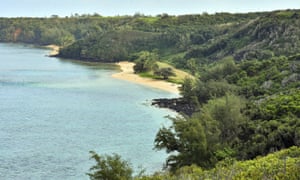
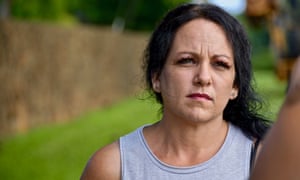
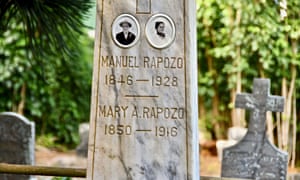
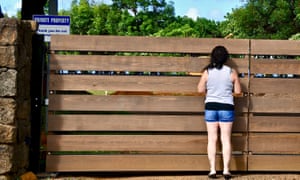



No comments:
Post a Comment